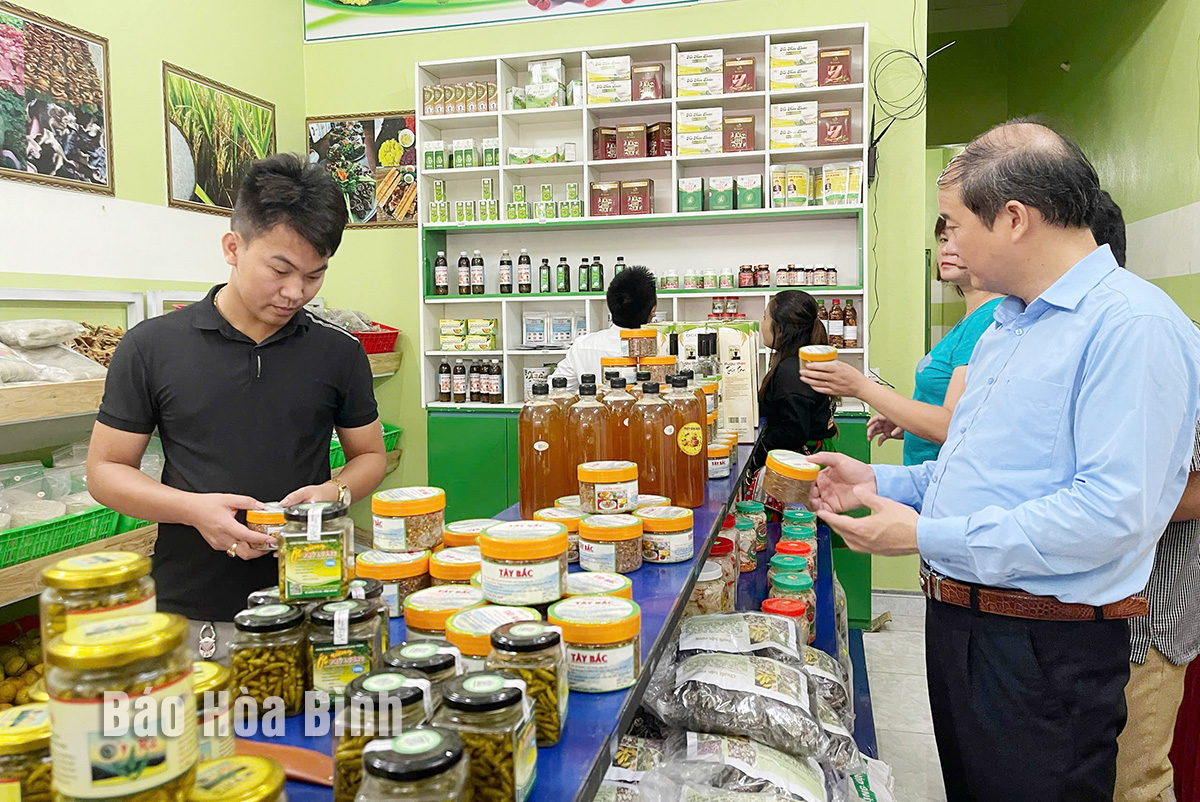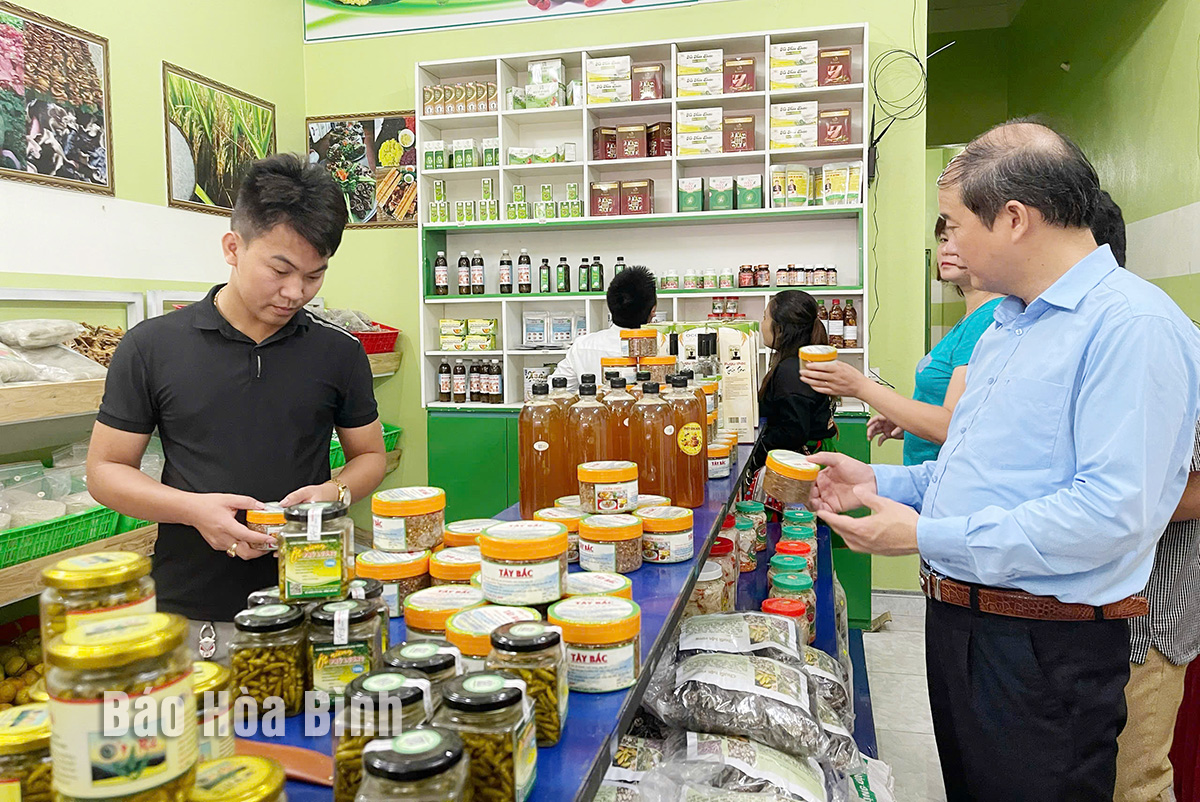
Over the past years, Da Bac district has effectively put in place the "One Commune-One Product” (OCOP) programme, thus raising the value of key agricultural products as well as income of local residents.
Tam Cuong safe agricultural product and food store in Da Bac town.
The district has regarded the development and standardisation of OCOP items as crucial to promoting production, building brands, and improving product quality.
It is home to six OCOP products, including Truc Son rice wine in Cao Son commune, indigenous pig and hill chicken in Tan Minh commune, and Da River black carp and catfish in Tien Phong commune.
The OCOP programme has contributed to economic restructuring, increasing income, and stabilising the livelihoods of rural residents, said Bui Khac Vinh, head of the district Bureau of Agriculture and Rural Development.
The official, however, pointed to obstacles to the implementation such as the hesitancy of local producers, along with issues regarding their eligibility for the programme as most of the production and business facilities have yet been registered.
Vinh said Da Bac aims to have at least six OCOP items rated at least three stars in the 2021-2025 period.
It will focus on standardising and developing products based on local resources, particularly specialties, establishing material areas, expanding production scale, participating in value and food safety chains, and encouraging businesses to upgrade product rankings.
According to data from the Hoa Binh Provincial Party Committee, the industrial production index for the first six months of 2025 is estimated to have increased by 20% compared to the same period last year. This marks the highest year-on-year growth rate for this period since 2020.
In the first six months of 2025, Hoa Binh province’s export turnover was estimated at 1.145 billion USD, marking an 18.11% increase compared to the same period in 2024. Import turnover was estimated at $ 804 million, a 17.15% increase, which helped the province maintain a positive trade balance.
The lives of the ethnic minority farmers in Tan Lac district have gradually improved thanks to the new directions in agricultural production. This is a testament to the collective strength fostered through the professional associations and groups implemented by various levels of the district’s Farmers’ Union.
With the motto the "product quality comes first,” after nearly one year of establishment and operation, Muong village’s Clean Food Agricultural and Commercial Cooperative, located in Cau Hamlet, Hung Son Commune (Kim Boi district), has launched reputable, high-quality agricultural products to the market that are well-received by consumers. The products such as Muong village’s pork sausage, salt-cured chicken, and salt-cured pork hocks have gradually carved out a place in the market and they are on the path to obtaining the OCOP certification.
In the past, the phrase "bumper harvest, rock-bottom prices" was a familiar refrain for Vietnamese farmers engaged in fragmented, small-scale agriculture. But today, a new spirit is emerging across rural areas of Hoa Binh province - one of collaboration, organisation, and collective economic models that provide a stable foundation for production.
Maintaining growing area codes and packing facility codes in accordance with regulations is a mandatory requirement for agricultural products to be eligible for export. Recently, the Department of Agriculture and Environment of Hoa Binh province has intensified technical supervision of designated farming areas and packing facilities to safeguard the "green passport" that enables its products to access international markets.



